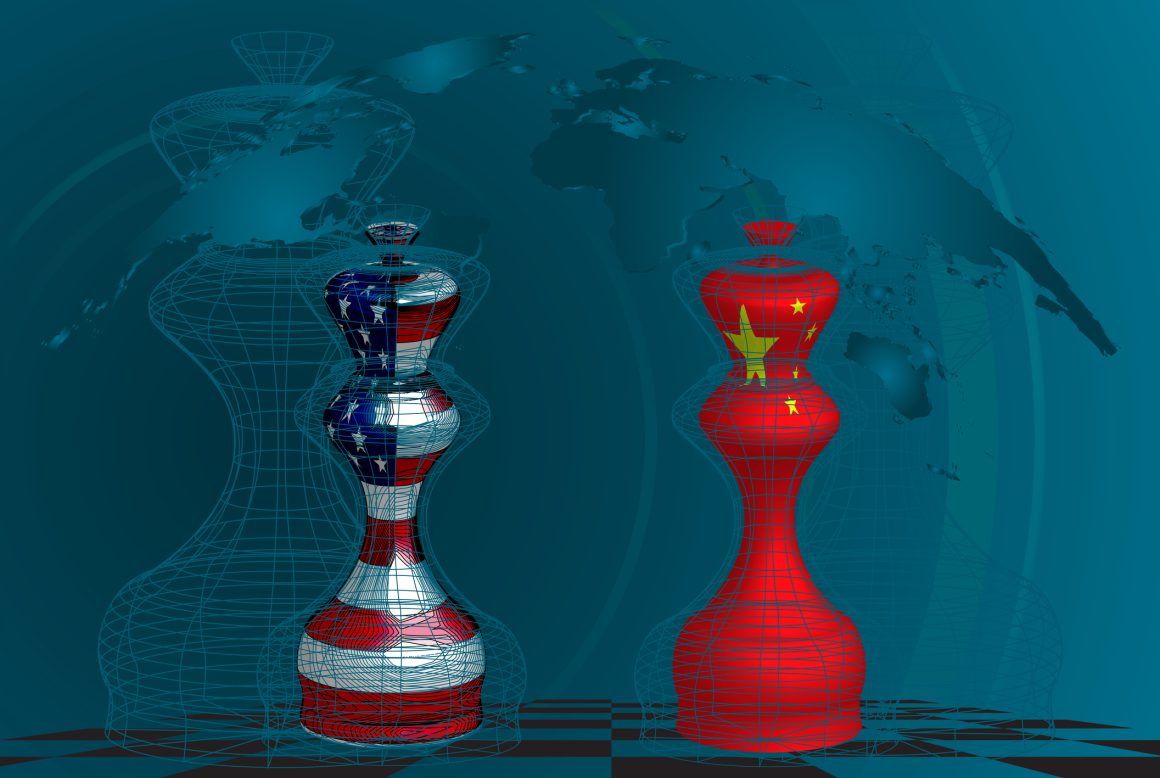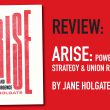By Vincent Kolo, chinaworker.info — ISA in China, Hong Kong & Taiwan
Are we witnessing a temporary thaw in the US-China conflict? This idea gained currency in September upon the release of Huawei’s Meng Wanzhou by Canadian authorities, as a result of a deal — officially denied — between China and the US. But a closer look at the ‘heatmap’ of global imperialist tensions shows that positions are actually hardening. This is especially over Taiwan.
During an interview with CNN in October, president Joe Biden said the US had a “commitment” to defend Taiwan militarily in the event of a Chinese attack on the island. Biden’s remarks caused some jaws to drop as they clearly stray from Washington’s long-standing position of strategic ambiguity, which means the US “protects” and sells arms to Taiwan, but stops short of an explicit undertaking to go to war. White House officials swiftly issued a correction: “The president was not announcing any change in our policy and there is no change in our policy.”
This was the second time Biden has overstepped the bounds of strategic ambiguity, the first time being in August, which drew a similar disclaimer from the White House. On the Taiwan question the language of diplomacy is often deliberately cryptic and equivocal. This has played its part in avoiding a military conflict, by papering over glaring contradictions. All parties, the ruling classes of China, the US, and Taiwan, have their own reasons for maintaining this strategic fog. Accordingly, Taiwan is banished to the status of a ‘non-country’, having official relations with only 15 mostly tiny nations, while otherwise possessing all the attributes of an independent state.
A dangerous balance
While every Chinese regime since Mao has accepted this arrangement, until now, it has done so begrudgingly, never abandoning the goal of “reunification”. Taiwan as an inalienable part of China is a core belief of Chinese nationalism and therefore also of the CCP. The process of capitalist restoration in China, and with this the demolition of basic welfare support and job security, and the growth of extreme inequality, has left the CCP dictatorship much more dependent on nationalism as the political cement that holds its rule together. Especially under Xi Jinping’s rule, whenever the regime feels threatened by social unrest it dials up the nationalism, with Taiwan and its “separatist forces” not infrequently the target.
In this respect, if symbols and historical baggage are stripped out of the equation, the CCP has effectively morphed into a 21st century version of the authoritarian nationalist and capitalist Kuomintang (KMT). This also explains the closer cooperation in recent decades between these erstwhile civil war enemies, the CCP and Taiwan’s KMT. This cooperation has recently become much more complicated, however, as mass hostility towards the CCP among the Taiwanese masses pressures the KMT to take a more critical stance towards it.
The CCP’s deafening propaganda promoting nationalism and the vision of China as a great power make it unthinkable for Beijing to accept a formal declaration of Taiwan’s independence. This and related issues, like the stationing of US troops on the island, are red flags that could trigger a war. As tensions rise, therefore, and Biden’s administration embarks on a more confrontational Taiwan policy, we are entering dangerous territory.
In the past the US felt that the balance achieved by its strategic ambiguity doctrine best served its interests. This was a sufficient deterrent against a Chinese attack, while also restraining Taiwan’s pro-independence political groups from going “too far” in the belief the US military was in their corner. Nowadays, however, more and more voices within the US capitalist establishment favour discarding this policy, much as Biden’s possibly unintentional remarks suggest.
Growing anti-China mood
In early October, the Wall Street Journal revealed that a small team of US elite forces and marines have been stationed in Taiwan since last year to train local troops, a decision taken by Trump’s administration and continued by Biden. The timing of the news was clearly designed to increase pressure on China and test its reaction. Beijing replied that the presence of US troops contravenes the 1979 treaty between the US and China.
The shifts at the top are matched by shifts in US public opinion, manipulated of course by the capitalist media which — only relatively recently — has begun to spotlight the Chinese state’s brutally repressive methods and its coercive policies towards smaller countries. This is only in order to advance US imperialism’s own coercive and frequently repressive foreign policy agenda.
For the first time, in an August poll (Chicago Council Survey), 52 percent of respondents support using US troops to defend Taiwan if China were to attack. Clear majorities also favour US recognition of Taiwan as an independent country (69 percent) and support Taiwan’s inclusion in international organisations (65 percent).
Socialists distinguish between the potentially progressive consciousness on one side of those sections of the population in the US and other countries who are repelled by Xi Jinping’s dictatorship and ‘wolf warrior’ nationalism, and look positively upon the rights of the Taiwanese people to decide their own fate, and the duplicitous strategies of the ruling class on the other side, for whom questions like dictatorship, democracy, the right of nations to self-determination, are all tradeable commodities, with the continued dominance of US imperialism being the only hard and fast principle. As socialists have explained many times, US imperialism is not in the democracy business; it supports two-thirds of the world’s military dictatorships today and has supported dictatorships in Taiwan and China in the past.
Taiwan’s Democratic Progressive Party (DPP) government and bourgeois Taiwanese nationalism cannot see, and do not want to see, this distinction. The DPP sees no alternative and is content to play the role of a chess piece for the US to use against China. In doing so, it lulls the people of Taiwan into a dangerously false sense of security. Mirroring the methods of the CCP and Chinese nationalism, the DPP/Taiwan bourgeois nationalism uses the defence of Taiwan and fear of a Chinese attack to muffle the class struggle on the island and to shield the DPP’s pro-capitalist agenda from growing discontent.
Moving the ‘goal posts’
For economic but especially geopolitical reasons, Taiwan has been thrust centre stage in the new Cold War. As we have explained, “Both American and Chinese capitalism want to control the Taiwan chess piece. More correctly, they must at all costs prevent the other side capturing control. For this reason, a geostrategic stalemate has been acceptable to both sides up until now.” [Will There Be a Taiwan War? chinaworker.info, July 13, 2021]
Increasingly this decades-long stalemate is being subjected to new pressures from all sides, which threaten to destabilise the fragile equilibrium in the Taiwan Strait and the wider region. In the worst-case scenario this could trigger military conflict. The Chinese regime is alarmed at the direction of the Biden administration’s Taiwan policies. This will almost certainly bring forth an even stronger military response from Beijing, both as a warning to Washington and Taipei and to stir domestic nationalism. Irrespective of whether Biden’s latest remarks were a slip of the tongue or a conscious shift of position, it is clear his administration has embarked on a strategy to incrementally move the ‘goal posts’ on Taiwan.
This will stop short of backing formal Taiwanese independence, because that would very likely trigger war. But as Secretary of State Antony Blinken recently outlined, US policy is now to proactively support Taiwan’s “meaningful participation throughout the UN system”. What does this mean and why is it being proposed?
UN membership for Taiwan is a non-starter, which Blinken knows, not least because of China’s veto as a permanent member of the Security Council. Taiwan was kicked out of the UN in 1979 as part of the historic deal between the US and Chinese regimes as part of a realignment — at the expense of the Stalinist USSR — in the previous Cold War. Therefore, the new US campaign seeks to champion Taiwan’s right to enter the UN’s periphery: agencies like the World Health Organisation (WHO) and the climate process. The Chinese regime’s inevitable opposition to such seemingly reasonable proposals will further undermine it in global, especially Western, public opinion and play to the advantage of the US in the global power struggle.
Shifts in the EU
The US has already achieved some successes in the diplomatic sphere, playing the Taiwan card to advance Biden’s strategy of building “democratic” coalitions against China. This year, in some cases for the first time ever, Japan, Australia, and the ‘G7’ group of advanced capitalist economies, all issued declarations of concern for Taiwan’s peace and security in language that could only enrage Beijing, which insists this is an “internal” Chinese affair. One example of the success of the US strategy is the recent shift in the EU, which Xi Jinping’s regime previously hoped would adopt a neutral position towards the unfolding Cold War.
In October, the European parliament, which is admittedly a largely powerless body not totally unlike China’s National People’s Congress, passed its first ever report on Taiwan by the crushing margin of 580 votes to 26, with 66 abstentions. The report is a political boost for Tsai Ing-wen’s government in Taiwan although it is “non-binding” on the EU tops and therefore heavier on symbolism than real consequences. Nevertheless, this was a setback, the latest of many, for Xi Jinping’s Cold War strategy to check US pressure.
The parliament’s report called for closer EU ties with Taiwan, the renaming of the European Economic and Trade Office in Taiwan as the European Office in Taiwan (a verbal snub to Beijing), condemned China’s “military belligerence” and declared solidarity with EU member Lithuania, which has invoked Beijing’s anger by upgrading its own relations with Taiwan. At the same time, Taiwan’s foreign minister Joseph Wu toured Lithuania and fellow EU states Czechia and Slovakia, in a further sign of shifting alignments within the EU. These developments in Europe reflect power struggles between different capitalist elites and states fighting over trade, investments and their own national interests within the 27-member bloc.
Some like Lithuania’s right-wing government have tilted into the US-led camp, others like the Hungarian right-wing government tilt — quite profitably — towards China, while others attempt to balance between Beijing and Washington, again for profit. Previously, Xi’s regime could count on German chancellor Angela Merkel to speak up for China, reflecting the demands of the German capitalists, especially in the car industry, for stable ties with their largest market. But following the September elections a less China-friendly government is likely to emerge in Berlin.
The sanctions spat between China and the EU in March over human rights in Xinjiang was an important turning point. From Xi’s standpoint this was a big miscalculation, allowing sections of the EU’s political elite to emulate the Chinese regime’s nationalistic tantrums, protesting against the CCP’s “interference” in Europe’s internal affairs. While Taiwan’s DPP government will hold up such examples of “solidarity” from European capitalist governments as political victories, socialists warn this is really just a theatre with empty performances designed to fool the people.
The diplomatic manoeuvres in the EU do nothing to further the struggle for genuine democracy and peace in Taiwan, China or elsewhere, including Europe. The “democratic” resolutions of the capitalists are a cover for economic plunder at the expense of working people.
Capitalism is the problem
The overwhelming majority of workers and young people in Taiwan do not want to be ruled by the CCP dictatorship, which brutally suppresses trade unions and all democratic rights. Fear of dictatorship forms the bedrock of support for Taiwan’s independence. Socialists recognize this and uphold the right of self-determination for the people of Taiwan.
At the same time, we warn that independence, peace and security for Taiwan, is an unreachable goal on the basis of capitalism and imperialism. The capitalist regimes in China and the US, for their own reasons, oppose independence, while Taiwan’s capitalists will sell themselves to the highest bidder.
The democratic and national rights of the Taiwanese people can therefore only be achieved as part of a revolutionary class struggle against Taiwanese capitalism and together with the working masses in China and globally, against US and Chinese imperialism. This would raise the demand for a socialist Taiwan as part of a wider regional and global struggle to abolish capitalism and imperialism and build genuine socialist societies with full democratic rights including the right to decide where the state frontiers should be.
The DPP in Taiwan repeats all the mistakes of Hong Kong’s bourgeois pan-democrats, whose illusions have now been brutally crushed. The pan-democrats’ aim was a limited form of democracy restricted to Hong Kong, which even in such a ‘moderate’ form was impossible on the basis of continuing dictatorial rule in China. They fatally presumed that capitalism, which they support, preferred democracy as its ‘natural’ form of rule, but in China and Hong Kong the capitalists long ago chose authoritarianism as the best instrument for their rule.
The pan-democrats placed their hopes for salvation in the governments of the US, the EU, and “international community” (i.e. global capitalism). But the most important, powerful and only genuine ally in resisting dictatorship is the super-oppressed working class of mainland China, Asia and globally. The difference between Taiwan and Hong Kong from the perspective of US and Western capitalism is that for their own economic and geopolitical self-interest, they are prepared to commit much greater resources to contain China’s power in the case of Taiwan.
New militarism
While there have been significant shifts on the diplomatic plane, the most dramatic recent developments are in the field of “hard power” — the military aspects of the new Cold War.
In the first five days of October, the PLA Air Force staged its largest ever air incursions into Taiwan’s Air Defence Identification Zone, deploying a total of 150 fighter and bomber planes. This brought the total so far to 600 Chinese military sorties this year, up from 380 in 2020. The aim of these exercises is to train pilots for a future war and to maintain pressure on both the DPP government and the US-led alliance. The actions of both sides serve only to escalate tensions.
Rather than erode support for Tsai Ing-wen’s government, the CCP’s pressure strengthens her hand domestically, and prolongs the crisis in the opposition Kuomintang, which is forced to adapt to the prevailing mood of Taiwan nationalism and tone down its support for closer links with China. In an article in Foreign Affairs (October 5) president Tsai appealed to the international community for support, claiming Taiwan was “on the frontlines of a new clash of ideologies”.
In reality of course the current worldwide clash has nothing to do with ideology and everything to do with which imperialist ruling class will dominate the global economy in the years ahead. US imperialism and Taiwan’s capitalist tycoons had no problem with Chinese authoritarianism when Beijing was content to play the role of global subcontractor based on its gigantic pool of cheap labour.
The sharpening rhetoric on the Taiwanese side, which is also an inevitable part of the island’s internal political struggles, could have dangerous repercussions by increasing Beijing’s anxieties, reinforced by the shifts in Biden’s Taiwan policy. In an editorial comment, the Financial Times (October 12) warned of “the acute dangers of a conflict over Taiwan”.
A new militarism is now on the front foot as Cold War positions harden. This includes the development of a terrifying new generation of nuclear weapons. China’s successful test of a hypersonic nuclear-capable missile in August has sparked more hand wringing from the Pentagon, demanding an even bigger arms budget. A Pentagon report in November warned that China is rapidly expanding its nuclear arsenal and could have 1,000 nuclear warheads by 2030, triple today’s number. Even this, however, is dwarfed by the US nuclear stockpile of 3,750 warheads.
Following the launch of AUKUS, an anti-China defence pact involving Australia, Britain and the US, Japan’s ruling Liberal Democratic Party announced a plan to double the country’s defence budget from 1 to 2 percent of GDP. Japan’s official “pacificism” since 1945 is now a thing of the past. The imperialist Cold War is a threat to working people everywhere, to democratic rights and world peace. The answer is not to side with a fictitious “lesser evil” but to build a mass socialist alternative to imperialism and war.
Meng Wanzhou released, but Huawei is not so lucky
When Meng Wanzhou, the CFO of telecoms giant Huawei, was released in September, she had been detained by Canadian authorities for almost three years pending possible deportation to the US to face sanctions-busting charges.
Meng is the eldest daughter of Huawei’s owner Ren Zhengfei (China’s 150th richest man in 2020) and the equivalent of CCP “royalty”. On the same day she flew home to China, the “Two Michaels” (Spavor and Kovrig) boarded a plane back to Canada from Beijing. Chinese officials cited unspecified “medical grounds” for their release. While for many this looked like a classic Cold War prisoners swap, the US and Canadian governments have vehemently denied any deal was done. Most likely, however, Joe Biden brokered Meng’s release, throwing Xi Jinping’s regime a non-strategic bone, to clear some space for the real strategic business of US imperialism which consists of strengthening its China containment policies.
“We love you!”
The welcome given to Meng on her return lifted a lid on some of the processes taking place in China today. State-run media was cranked up to full volume – 100 million people reportedly watched the live broadcast of Meng’s arrival at Shenzhen’s airport where some in the specially mobilised crowd shouted, “You are a heroine. We love you!” Top officials of the Shenzhen and Guangdong provincial governments led this reception. The “Communist” People’s Daily proclaimed Meng’s return a “major victory of the Chinese people”, which showed, “no power can stop China’s advancing steps”.
For propaganda purposes and the Chinese regime’s constant need to whip up nationalism, Meng, the figurehead for a company linked to brutal “996” work schedules (12 hours per day, six days per week) and “wolf culture”, was transformed into a national hero. Through the eyes of state media the return of the “Huawei princess” was akin to China’s Mandela Moment or even Lenin’s arrival at the Finland Station in 1917!
“Without a strong motherland, there would be no freedom as I have today,” Meng told the cameras. “Thank you, my dear motherland, and the party and government. It is the brilliant Chinese red that ignites the fire of faith in my heart, illuminates the darkest moments of my life, and leads me on the long journey home.”
That such over-the-top displays of nationalism are not universally popular, is shown by an online pushback particularly against the decision of Shenzhen’s government to light up the city’s skyline with the slogan, “Welcome home, Meng Wanzhou!” at a time of crippling electrical power cuts across China. Meng has been let off the hook from a bizarre legal case, but the same cannot be said for Huawei, which is still on the frontline of the US-China tech war. The campaign by the US and other Western governments to ban Huawei’s 5G infrastructure from global telecom markets has only intensified since the US placed the company on a blacklist in 2019. In August, Huawei’s chairman Eric Xu said its “aim is to survive” as he reported a 30 percent fall in revenue during the first half of 2021.
The Meng affair has had a big impact on relations between Canada and China. A poll published after Meng’s release showed that 76 percent of Canadians (up from 53 percent in 2019) want the government to ban Huawei from the country’s 5G networks. Almost as many were against negotiating a trade deal with China. The Chinese regime’s imprisonment of the “Two Michaels”, a policy dictated by Xi Jinping’s constant need to adopt a strong nationalist posture at home (so-called ‘wolf warrior’ diplomacy), has only further undermined China’s global position, alienated ordinary people, and facilitated the anti-China strategy of Biden and US imperialism.












